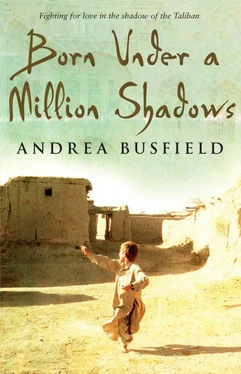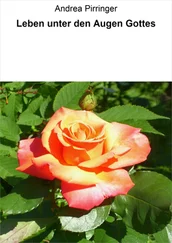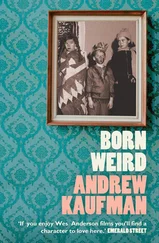Back in my room I tried to escape in a book Shir Ahmad had given me about all the famous people in the world, with names like Einstein, Nightingale, Pasteur, Picasso, Tolstoy, Joan of Arc, Socrates, and Columbus. According to the pages I’d read, they’d all done pretty amazing things with math and medicine, fighting and traveling, and even just thinking. Unfortunately, the book also revealed that they were all dead, which did little to keep my mind off Spandi.
“It will take time, sugar,” explained May when I found her in the kitchen.
I nodded.
“Time, Fawad, that’s all you need,” confirmed James, looking up from his laptop when I saw him in the garden.
I nodded again.
“Everything seems better in time,” agreed Georgie when she passed me on the steps on her way to work.
“How much time?” I asked.
“Oh, I guess it depends on the individual, but seeing as Spandi was such a special friend I imagine it may take a bit of time.”
So that was clear: I only needed time, and I probably needed a bit of it.
I realized then that it was only my mother who fully understood what I was going through because she said absolutely nothing. She just pulled me into her arms when I came to sit in her room, and she left me alone when I didn’t.
The afternoon we buried Spandi we’d all returned to our home to drink tea in the garden, apart from Georgie, who disappeared out of the gate to sit with Haji Khan in his Land Cruiser. He had turned up shortly after us and had sent Abdul to bring her outside.
Normally I would have been dying to know what they were talking about, but my interest had gone and I wasn’t sure I would be able to find it again. In fact, I couldn’t help thinking that despite their height, adults were just plain unbelievably stupid: men were blowing up other men; soldiers were shooting at children; men were ignoring women they loved; the women who loved them were pretending they didn’t; and when I read the newspapers to Pir Hederi, everyone they talked about seemed to be far more interested in rules and arguments and taking sides than the actual business of living.
The Indian actor Salman Khan, who’s not quite as famous as Jamilla’s future husband Shahrukh Khan, once said in a magazine I found dumped near Shahr-e Naw Park that people should “go straight and turn right” in life. I thought about this for a while, and I ended up thinking he was wrong. But because Salman Khan was a famous actor and I was just a boy whom some people knew from Chicken Street, I tried it out. Walking straight up the main Shahr-e Naw road, I turned right into Lane 3. Going straight and turning right again, I found myself in Kooch-e Qusab, the street of butchers. Going straight and turning right for a third time, I came to Lane 2. Finally, after going straight and turning right yet again, I arrived at the main Shahr-e Naw road, right back where I started. That’s when I knew that no matter what Salman Khan had to say, and no matter how many men he had killed and how many women he had made fall in love with him, sometimes in life you just have to turn left.
The third day after we buried Spandi, Haji Khan returned to our house. However, this time he sent Abdul inside not for Georgie but for me.
“I thought we might go together to Spandi’s house,” he said, standing in the street, watched by one of his guards.
“Okay, I’ll tell my mother,” I replied.
In Afghanistan, when people die there are strict times for prayers. The first are said on the day of burial, of course, then three days after we say them again, then again after a week has passed, then forty days from the time they went into the ground, and then finally a year later. This was the first time I had ever been properly involved in the business of saying good-bye to the dead, and I wondered how many more I would have to say good-bye to before my own life was over.
I wasn’t looking forward to returning to Khair Khana, but in the end I was glad I did because it was almost beautiful. At his brother’s house, Spandi’s father was surrounded by people who had come to repeat the words of Allah, and speak their own words of help and hope to him. As they fed their love into his bones through handshakes and whispers, I saw the difference it made to Spandi’s father, who looked bigger than the last time I’d seen him, not nearly so destroyed. And it helped me too because I could see that away from the politicians and their arguments, away from the suicide bombers and their murders, and away from the soldiers and their guns, people were good. Afghan people were good. And even though I was having trouble controlling my brain, I knew I had to try to hold on to at least that truth.
In the small front room of Spandi’s uncle’s house, dozens of people I didn’t know were taking time out from their own lives and their own problems to remember a little boy who had been my best friend. I saw the sadness in their eyes, and I saw it was real. I heard the soft hum of their words, and I heard they were true.
And so I took these pictures and sounds, and I stored them in my head so that I would always remember that there was more to Afghanistan and Afghans than war and killing.
“When I was about your age one of my best friends died.”
Haji Khan was driving and smoking. Beside him was a man with a gun that looked as terrifying as he did. I was sittings in the back, feeling small.
I looked up at his words and caught him watching me in the rearview mirror. His eyes were dark as night, and his forehead was broken by lines above heavy black eyebrows. He looked both fearsome and kind, which should be impossible, and I remembered Georgie’s story about the time he had traveled to see her in a Shinwar village so many years ago.
“How?” I asked. “How did your friend die?”
“We were playing by the river in Surkhrud, a village just outside Jalalabad where the water runs red from the mountains. He fell in and drowned.”
“It must have been a deep river.”
“No, not really. I think he hit his head on some rocks when he slipped because, when I realized he wasn’t fooling around and I tried to pull him out, there was a deep cut on his head.”
“You thought he was playing?”
“Yes, I’m afraid I did. Hey! Mother of a cow!”
Haji Khan suddenly swerved the car to avoid a one-legged man riding a bicycle almost into our path. After sounding his horn and frowning at the cripple, who would soon lose the other leg if he wasn’t more careful, Haji Khan looked at me apologetically.
“Sorry about that,” he muttered. “Best not tell Georgie I said that.”
“Said what?” I asked.
And he looked at me in the mirror again, smiling with his eyes.
“So, how did you feel when your friend died?” I asked.
“Not good.”
“I don’t feel very good either,” I admitted.
“You won’t right now,” Haji Khan replied with a shrug, “and maybe you never will. I still think of my friend even today.”
“Ho… that’s a long time.”
“Yes,” Haji Khan agreed. “Sometimes I think the dead have it easy. The difficult part is staying alive and, more than that, wanting to stay alive.”
When we arrived back at the house, Haji Khan reached into the space between the two front seats of his Land Cruiser where a little drawer was hidden. He pulled out a book and passed it back to me. It was covered with the softest leather, like a baby’s skin, and inside were about a hundred handwritten poems in Pashto. When I flicked through the pages I saw the verses were all about love, each and every one of them.
I looked at Haji Khan, not sure what to say.
“It’s not for you.” He laughed, obviously picking up on the worry that had crept into my head. “It’s for Georgie. But maybe you can read these poems to her now and again because she’s been very lazy and hasn’t learned Pashto.”
Читать дальше












